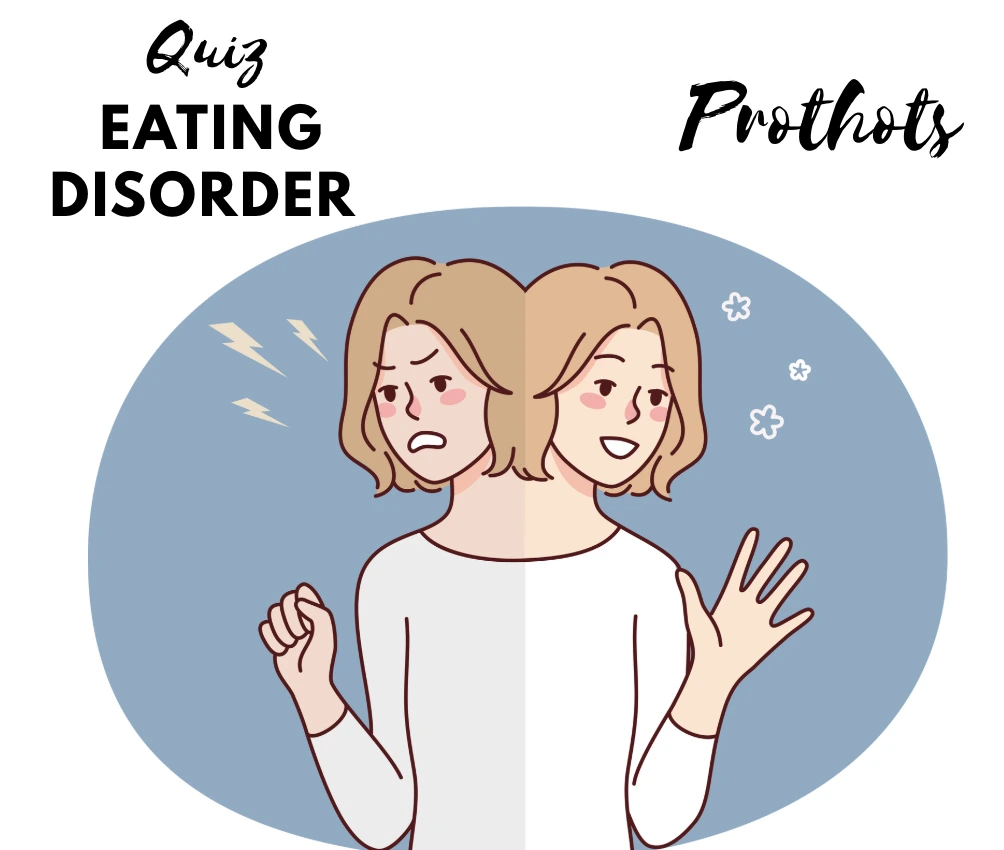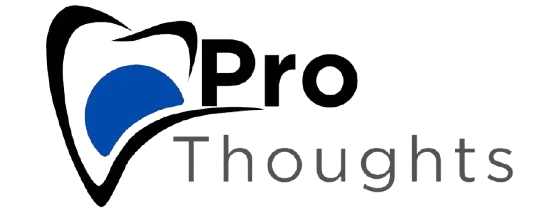Eating Disorder Quiz – Free at ProThots
Take this confidential self-assessment to explore whether you may be experiencing signs of an eating disorder. Based on common clinical patterns.

Understanding Your Relationship With Food, Body, and Self
At ProThots, we understand that your relationship with food, your body, and your emotions is deeply personal — and sometimes difficult to navigate. That’s why we created this free, confidential Eating Disorder Quiz, designed to help you reflect on your habits and feelings surrounding eating, body image, and control.
Eating disorders are not about vanity or willpower. They are serious mental health conditions rooted in emotional pain, trauma, or distress — and they are treatable. Early awareness is key, and this quiz is a safe first step.
What Are Eating Disorders?
Eating disorders are psychological illnesses characterized by abnormal or disturbed eating habits. They are not simply about food — they often stem from deeper emotional struggles, including anxiety, depression, trauma, or the desire for control.
There are several types of eating disorders, including:
- Anorexia Nervosa – Intense fear of gaining weight, severe food restriction, and distorted body image
- Bulimia Nervosa – Cycles of binge eating followed by purging (vomiting, laxatives, over-exercising)
- Binge Eating Disorder – Eating large amounts of food in a short time, often accompanied by shame or guilt
- Avoidant/Restrictive Food Intake Disorder (ARFID) – Avoidance of certain foods or eating due to sensory sensitivity or fear of choking, without weight concerns
Anyone — regardless of gender, age, weight, or background — can experience an eating disorder.
What Is the Eating Disorder Quiz?
The Eating Disorder Quiz at ProThots is a self-assessment tool designed to help you reflect on your behaviors, thoughts, and emotions around eating and body image. It consists of 10 multiple-choice questions that ask about:
- Food-related guilt
- Body dissatisfaction
- Eating in secret
- Control around food
- Obsessive thoughts about weight or calories
- Impact on daily life
Each question is designed based on patterns identified by mental health professionals and organizations such as NEDA (National Eating Disorders Association) and DSM-5 criteria.
Important Note: This quiz is not a diagnosis. It is a tool to raise awareness and encourage you to explore next steps in care or support.
Benefits of Taking the Eating Disorder Quiz
Self-Awareness
Many people live with disordered eating habits without realizing how deeply these behaviors affect their well-being. The quiz helps you recognize patterns that may have gone unnoticed or normalized over time.
Completely Private
You can take this quiz anonymously and receive results instantly — no login, email, or signup required. Your answers are never stored.
Fast and Easy
The quiz takes just 3–5 minutes to complete and gives you an immediate score with clear guidance on what it may mean.
Based on Clinical Insights
Our quiz draws from screening techniques used in eating disorder evaluations by licensed clinicians. It’s not a replacement for therapy, but it’s rooted in psychology.
Empowerment Through Knowledge
If you’re struggling, having a starting point — like quiz results — can help you start a conversation with a loved one or professional. If you’re not struggling, the quiz can still help you develop a healthier relationship with food.
Signs You May Have Disordered Eating Patterns
Not everyone with an eating disorder is underweight or looks unwell. Here are some red flags:
- Constant preoccupation with calories, weight, or food
- Skipping meals or eating very small portions despite hunger
- Intense guilt or shame after eating
- Using exercise, vomiting, or laxatives to “undo” eating
- Eating large amounts of food rapidly (bingeing)
- Hiding food or eating in secret
- Feeling “out of control” during eating episodes
- Avoiding social events that involve food
- Fear of gaining weight even at a low body weight
- Mood swings tied to food intake or body image
If you identify with several of these behaviors, the quiz can help you assess the severity and offer next steps.
Tips for Building a Healthier Relationship With Food
Whether you’re concerned about your eating patterns or simply want to improve your mental wellness, these tips can help promote a more balanced approach to eating:
Eat Regularly
Your body and brain need fuel. Skipping meals can lead to bingeing, irritability, fatigue, and obsessive food thoughts.
Challenge Food Rules
Notice beliefs like “I can’t eat after 7 PM” or “carbs are bad.” These rules often fuel guilt and restrict natural hunger cues.
Practice Mindful Eating
Slow down. Eat without distractions. Notice textures, flavors, and your body’s signals. Mindful eating helps you reconnect with your needs.
Respect Your Hunger
Hunger is not the enemy. It’s a biological signal — like thirst or tiredness. Ignoring it leads to more intense cravings later.
Ditch the Scale
Weight fluctuates for many reasons. Fixating on numbers often worsens anxiety and self-judgment. Focus on how you feel, not how much you weigh.
Seek Support
Recovery is hard to do alone. Talk to a friend, family member, therapist, or support group. Sharing your story breaks shame.
Frequently Asked Questions
Is this quiz only for women?
No — anyone can struggle with an eating disorder. Men, non-binary people, teens, and older adults are also affected, often underdiagnosed.
What if I don’t have all the symptoms?
You don’t need to have “classic” signs to have disordered eating. Even mild patterns can affect your health and happiness.
Is being underweight required for a diagnosis?
Absolutely not. Eating disorders occur across all body sizes. You can be in a larger body and still be experiencing serious emotional and behavioral distress.
Can this quiz replace a therapist?
No — this quiz is a screening tool, not a diagnosis. If your score is moderate or high, we recommend speaking with a mental health provider.
When to Seek Immediate Help
If you or someone you know is:
- Fainting, dizzy, or showing signs of malnutrition
- Vomiting regularly after meals
- Hiding or hoarding food
- Obsessively exercising
- Showing signs of suicidal thoughts or self-harm
Please don’t wait. Seek support from a licensed therapist, call a crisis line, or visit your nearest medical provider.
ProThots recommends speaking to professionals trained in eating disorders. Early intervention leads to better recovery outcomes.
How ProThots Supports You
We created this quiz because we know that eating disorders are often misunderstood, hidden, and minimized — especially by the people suffering from them.
At ProThots, we’re here to provide:
- Free and private self-assessments
- Evidence-based content on food, body image, and healing
- A safe, inclusive, judgment-free online space
- Resources to connect you to real help
Taking this quiz is not a weakness — it’s a strength. It shows that you are self-aware, curious, and courageous enough to explore what’s going on beneath the surface.
What to Do After You Take the Quiz
After finishing the Eating Disorder Quiz, you will receive a total score and a brief interpretation of what it means. Here’s how to move forward:
- If your score is low, continue practicing balanced eating and body respect
- If your score is moderate, begin tracking patterns, journaling, or speaking with a friend
- If your score is high, consult a licensed therapist or a specialist in disordered eating
- Consider joining a support group or online community
- Use your quiz as a baseline and retake it every few weeks to check in with yourself
